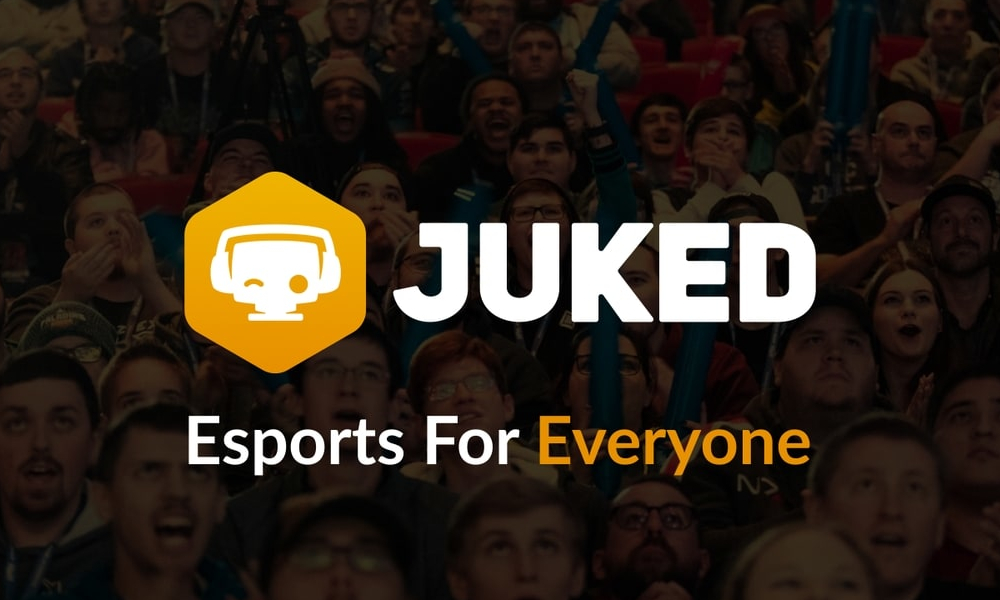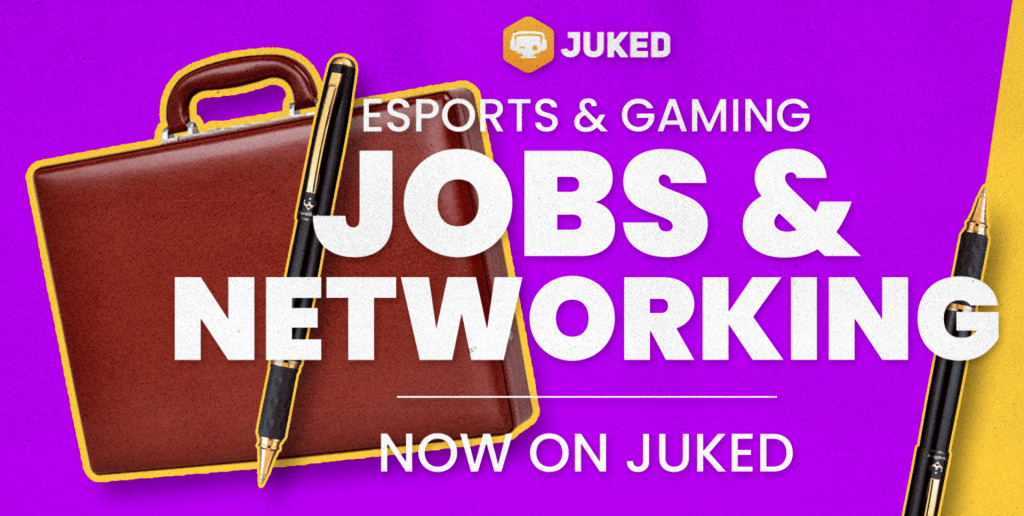
Esports discourse isn’t working.
That is the central idea behind Juked — an esports social media app and community — that was formally launched this year by a group of esports industry insiders and veterans.
Its mission is noble: to change the way esports fans communicate, and to combat the negativity created by ‘hot takes’ that have become commonplace on platforms which reward shorter, less nuanced reactions like Twitter and Reddit.
But a shock announcement on Friday threw the promising premise into question. Juked’s CEO Ben Goldhaber took to Twitter to admit that the company’s finances were in dire straits.
“The long story short is that we are running low on funding, and the future for Juked is more uncertain than ever,” Goldhaber emphatically announced in a company blog post, void of even an ounce of PR spin.
Goldhaber wasn’t sugarcoating it. An acquirer was needed to bring on more money within a “tight timeline” of just two weeks — and if none are found, Juked will begin ceasing operations on October 7th.
The investment environment, he argued, had become more hostile to risky startups like Juked as the crypto and Web3 market nosedived, esports investments became more sparse, and central banks around the world began dramatically hiking interest rates as inflation skyrocketed.
Esports Insider interviewed Goldhaber two weeks before Friday’s announcement. Goldhaber shed light on the progress the company had made since its launch earlier this year, and how the team is looking to stay afloat.
Juked’s journey
The team’s hypothesis, Goldhaber claimed — and still maintains — is that esports could be “four or five times bigger than it is today.”
The app, therefore, was conceived as a tool to foster industry growth by reducing friction between disparate fans and their hobby. Juked allows users to access scores, schedules, streams, VoDs, and news in one place. While that need is met in some games, such as HLTV.org in the Counter-Strike community, there were no dedicated platforms that did everything, for every game, in one accessible location.
Another central premise, the app’s approach to toxicity, was something that came later.
“It was coming up in so many conversations completely unprompted. … We asked very open-ended questions in our user interviews like ‘what do you hate about esports?’ By far, the most common answer would be I hate Twitch chat… Reddit … Twitter as the primary places where discussions are happening. So that informed us to make this change in our philosophy and our strategy and our marketing and our brand.”
Goldhaber, who had previously worked on the founding team at Twitch, saw an opportunity. Together with Co-founders COO Chris Chan and CTO Delan Tai, he began building the app that he believed had a total addressable market of $10bn (~£9.26bn).
A promising start
Goldhaber said the app’s first fundraising round with institutional investors came at an auspicious time for esports funding. “We raised our initial round in 2019. In 2016-17, every single major venture capitalist (VC) fund out there wanted to write a cheque for esports companies.”
Juked also completed a ‘crowd investment’ round on Republic in 2019, bringing in $1m (~£925,000) from amateur retail investors through SAFE crowdfunding (a legal agreement that facilitates small-scale startup investment, while giving founders more control).
Throughout Juked’s journey, Goldhaber has, to a fault, had an obsessive dedication to transparency — from publicly posting usage statistics to talking to esports subreddits to, now, revealing the company’s financial quandary. He has claimed in interviews that he feels obligated to do so because of the trust the community placed in him.
Initial statistics after the app formally launched this year were promising. Four months in, Juked had over 16,000 users, with the most popular games being communities that did not have an obvious standalone esports discussion space: Rocket League and VALORANT.
Meanwhile, the company was furiously pitching its product-led strategy to investors. Juked would need more revenue to keep developing the app, and begin marketing to users rather than relying on word of mouth.
The company launched a second crowdfunding campaign in order to help fuel further feature development. Unfortunately for Juked’s team, it wasn’t able to hit its goal of $400,000 (~£372,000) within the first six weeks. The reality of both the economic environment, and the company’s circumstances, began to hit hard.

Unfortunate timing?
The company had been quite lucky when it began its first funding round back in 2019, Goldhaber explained. “[Market enthusiasm] was slowing down but still continuing. But over the course of the past two to three years, there’s been a lot more scepticism about the industry.
“When we talk to VCs, we keep hearing that esports doesn’t monetise well, and that makes it really tough for independent startups to actually monetise this audience. VCs want to see a return on their investment at this point, and not a lot of startups have been able to prove that story out.”
As a social media platform, Juked struggled to answer those questions. Other platforms, Goldhaber pointed out, had more time to think about monetisation strategies. Discord took two years to unveil its ‘Nitro’ subscription system, but its founder, Jason Citron, began with a nest egg of $100 million (~£92 million) from a previous acquisition.
Yet in spite of Juked’s ongoing search for an acquirer, Goldhaber remained optimistic about Juked’s potential to boost the entire esports market if it is given the opportunity to continue. “100%, this is a public good. In esports today, monetisation is lagging, the growth rate of fandom has slowed down compared to where it was seven years ago.
“My Co-founder Chris and I have been friends for a long time. And we’ve talked about these problems over and over again. Part of our DNA is that we want to see this industry continue to flourish and grow.”
Whether Juked’s search is successful or not — passionate early adopters are likely holding their breath that it is — the app has a clear mission to evolve the industry. Indeed, to foster more interesting conversations around esports by moderating users more effectively and ensuring that the most dedicated fans have a dedicated home. Despite funding challenges, the app has serious potential to transform discourse around esports for the better: a complaint that is frequently chronicled, but rarely addressed in the industry.
For now, it’s unclear whether Goldhaber’s almost unprecedented blog post represents a strategy to gauge public interest in the project, or is simply the logical conclusion of his trademark commitment to transparency.
Juked is currently, for better or worse, one of the most-watched developing stories in the business of esports. Its uncertain fate is a reflection of broader changes in the esports industry and investment market. There was a time not long ago when investors and advertisers would be falling over themselves for a platform that onboarded 16,000 active hardcore esports fans within four months.
Monetisation aside, Juked has proven itself as a viable product that, if Goldhaber is to be believed, could be so much more with a longer runway. The next two weeks will be a crucial litmus test not just for Juked, but for independent startups across the esports industry. Will the obvious merits of the promising, if troubled, platform save it from circumstance?
